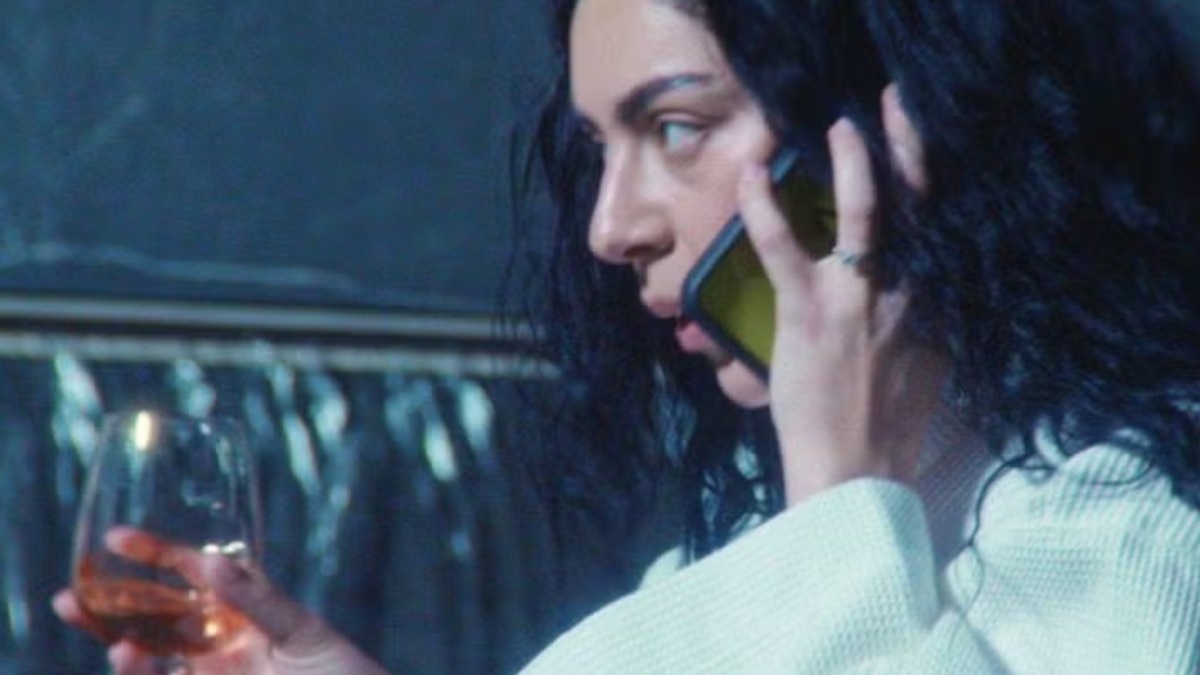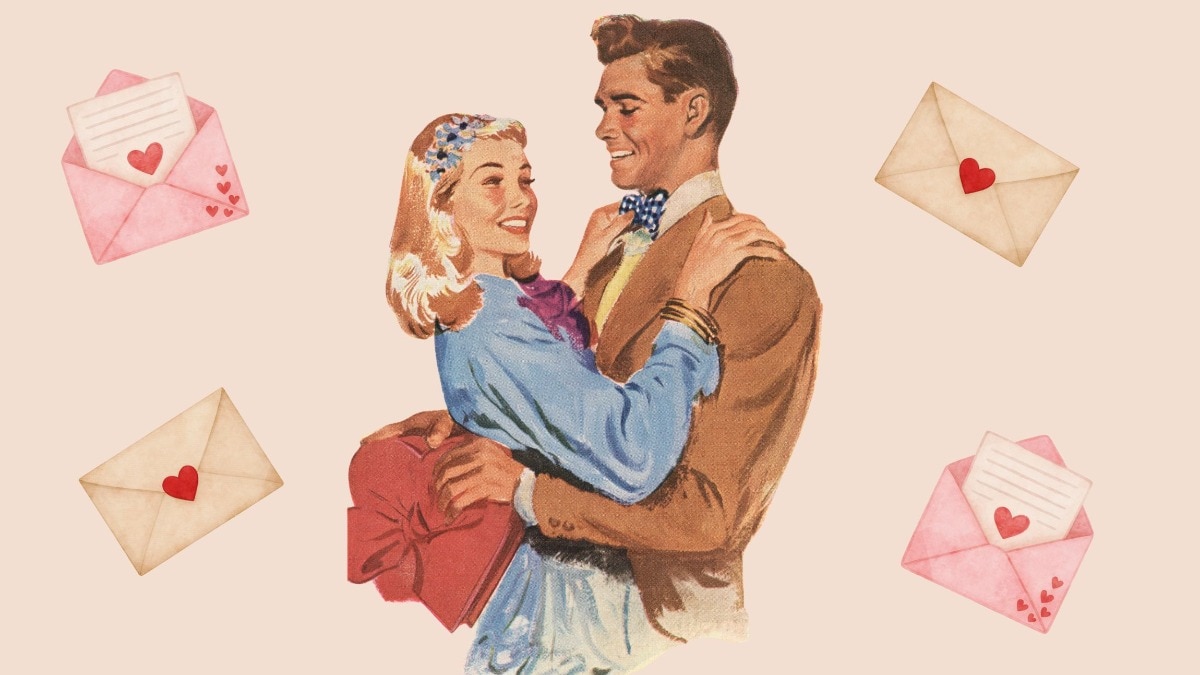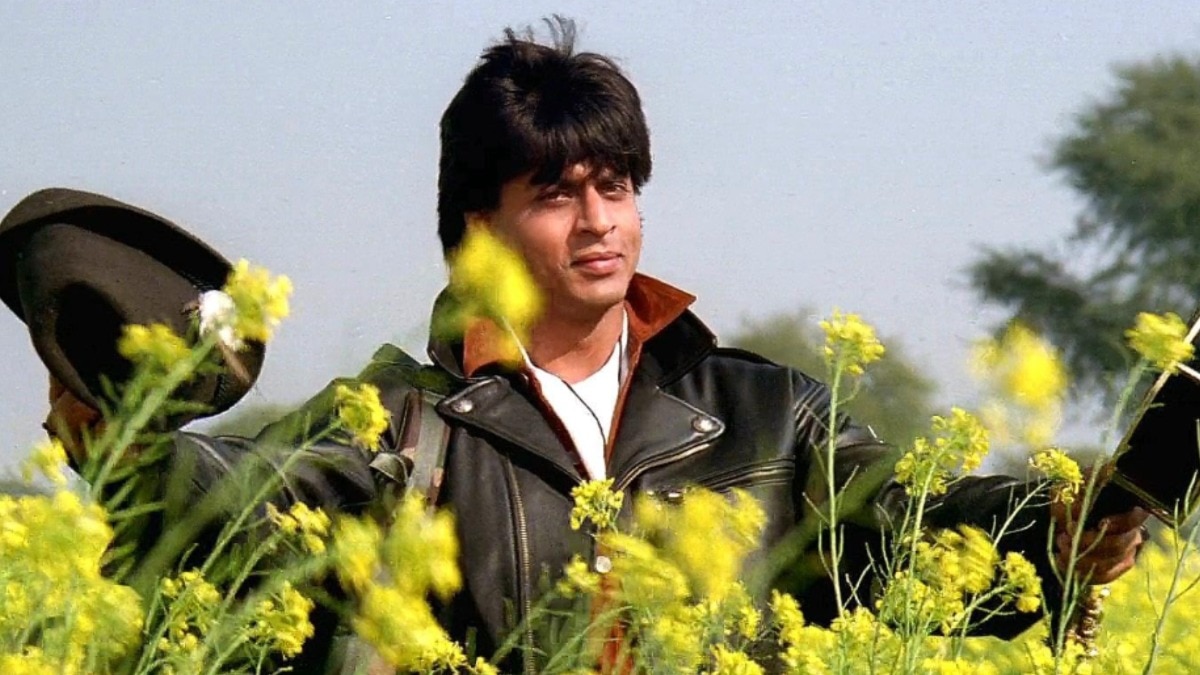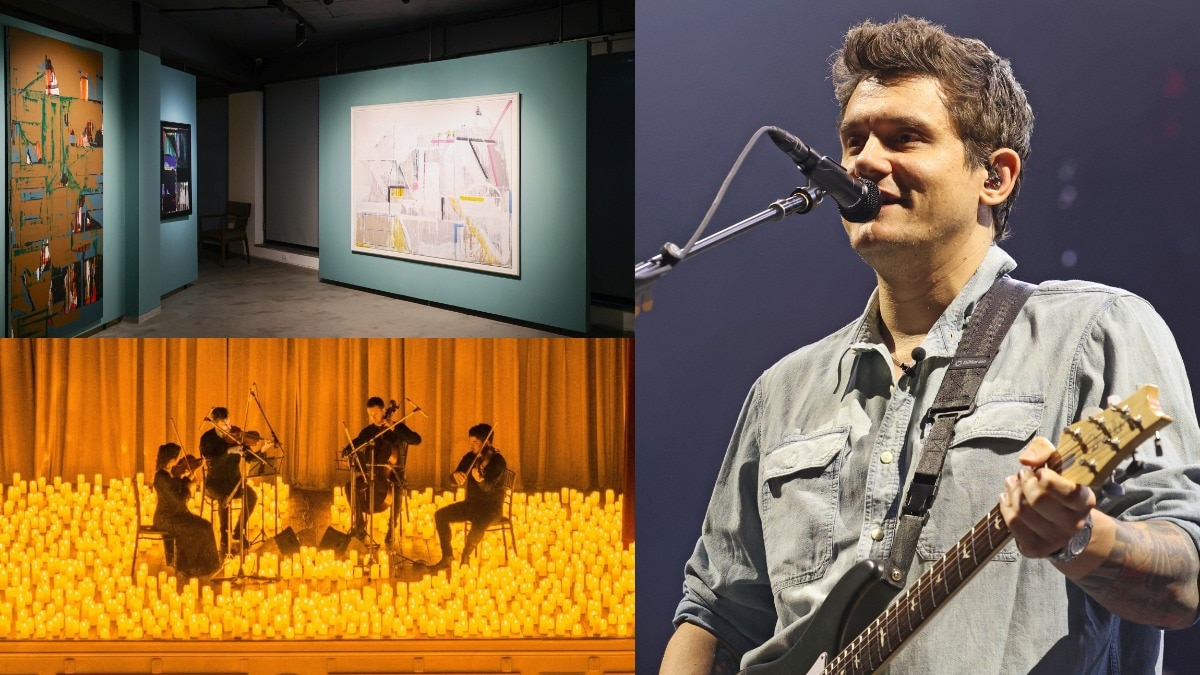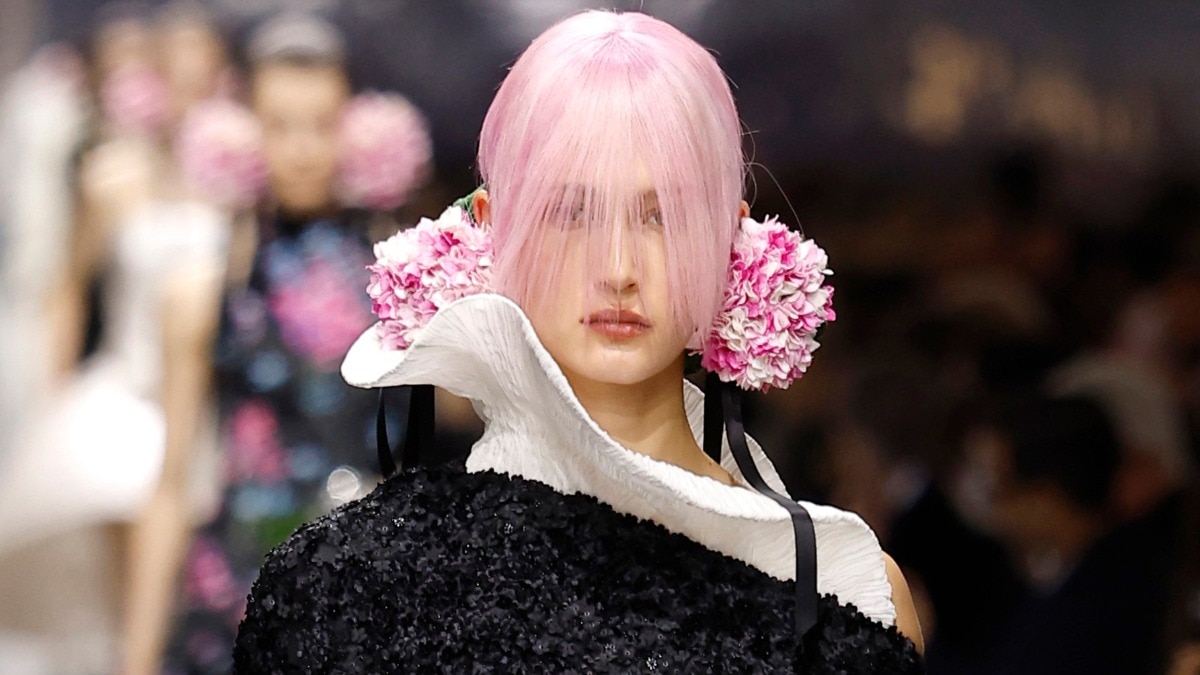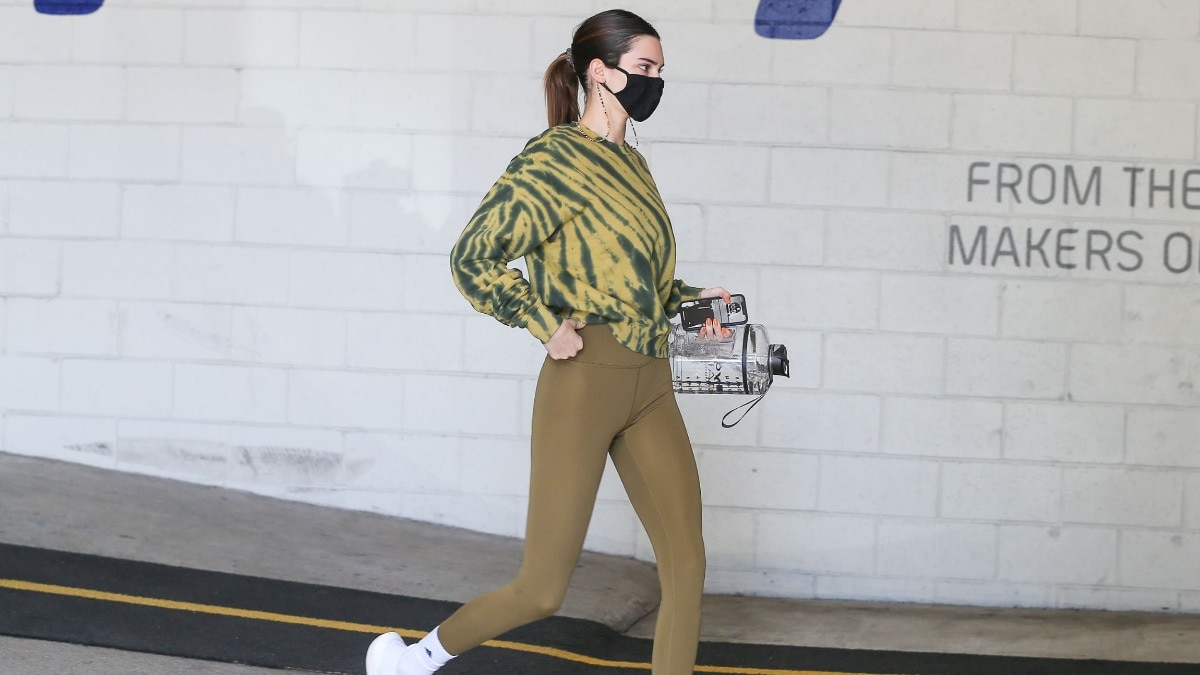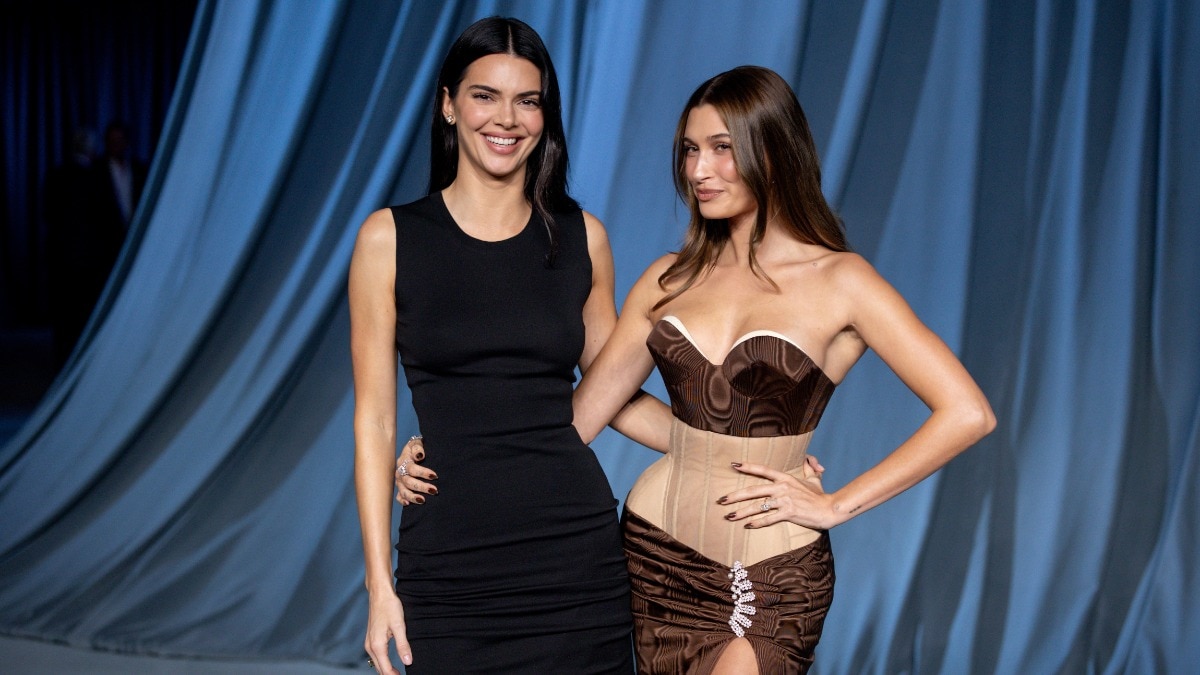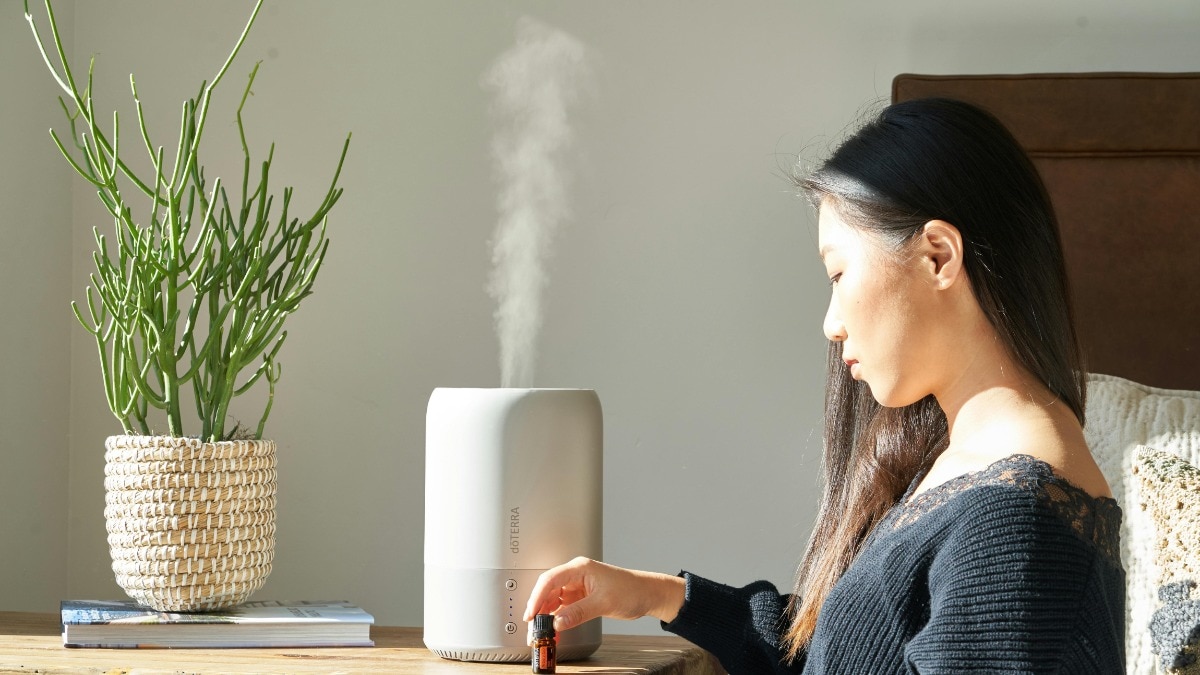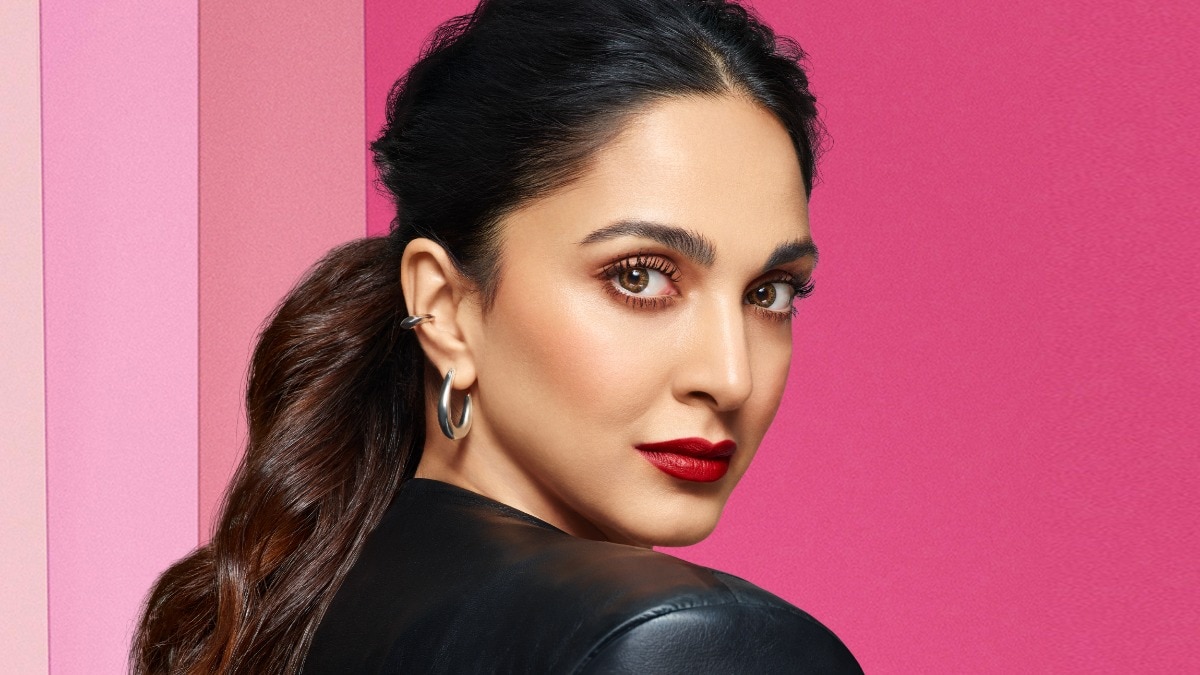75 essential feminist movies you need to see
Let’s hear it for the girls.

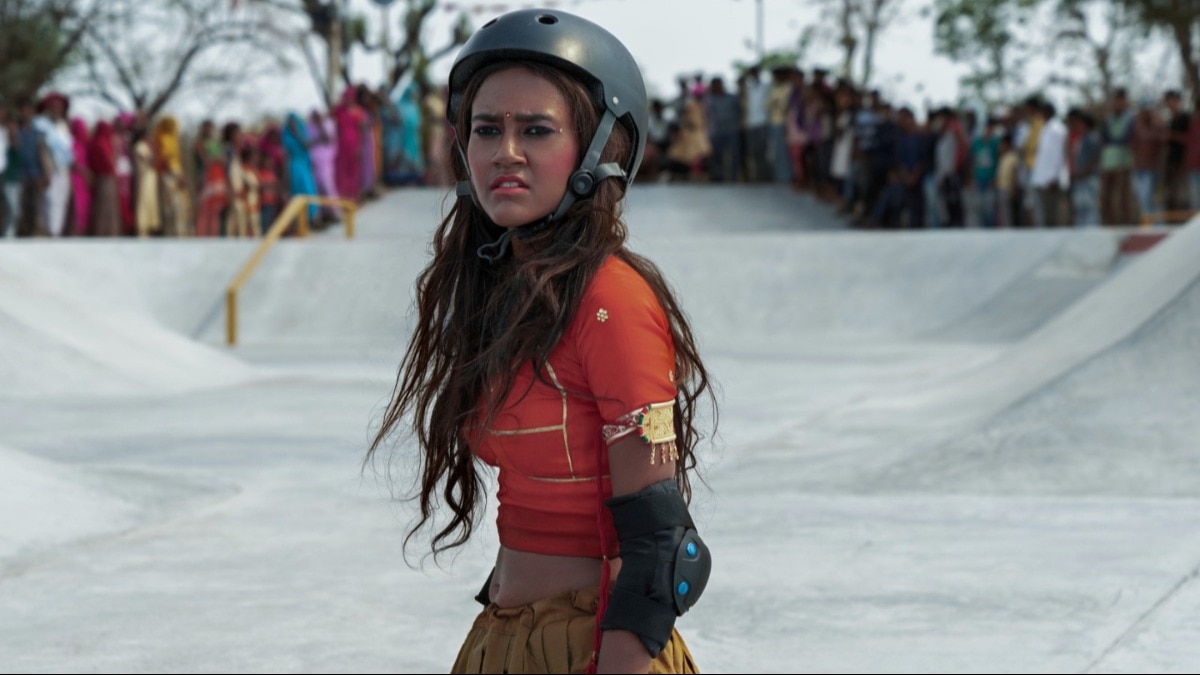
Feminism isn’t a trend. Or a movement. Or a slap in every man’s face. It’s simply the continued push for equality. And over the decades, legions of inspiring women have shaped feminism, insisting that it is a woman’s right to do whatever the fuck she wants to do. Their stories—offering everything from sisterhood tales and solidarity epics, to intersectional perspectives, and empowerment narratives—don’t always get the attention they deserve. But when they do, we notice.
Ahead, see our recommendations for some of the most essential films celebrating feminist themes and ideals. They are filled with women, people who identify as women, men who support women, and millions of tiny shards from shattered glass ceilings, along with the remains of tired stereotypes and social norms. When you’re done here, check out the best lesbian films of all time, essential feminist books to read this year, and the most anticipated new shows of 2024.
Alien (1979)
Sigourney Weaver’s Ellen Ripley is one of science fiction’s most memorable female characters. She’s not a damsel in distress—she’s a ferocious final girl, and the only survivor to defeat the monster that mutilated and destroyed every other member of the Nostromo crew.
Set It Off (1996)
Queen Latifah, Vivica A. Fox, Jada Pinkett Smith, and Kimberly Elise play a group of friends who find themselves at the mercy of intersectional violence, turning to robbing banks as their only way of dealing. F. Gary Gray’s 1996 heist film is a seminal feminist thriller that tells the stories of its working-class characters in an incredibly entertaining, compassionate, and empathetic way.
Hidden Figures (2016)
While the male brains at NASA fretted over how to put a man in space before their Russian adversaries, there were three brilliant African-American women doing the math that would actually get him there. Their names were Katherine G. Johnson (Taraji P. Henson), Dorothy Vaughan (Octavia Spencer), and Mary Jackson (Janelle Monáe). And now, thanks to this Oscar-nominated film, these American heroes will never, ever be forgotten.
The First Wives Club (1996)
If the sight of Diane Keaton, Bette Midler, and Goldie Hawn reclaiming their independence from their manipulative ex-husbands while singing in unison to Lesley Gore’s “You Don’t Own Me” isn’t a pop-filmic ode to feminism, then we don’t know what is.
Moana (2016)
It takes a strong woman to join the single-moniker club occupied by the likes of Beyoncé, Madonna, and Elsa, but this Polynesian voyager princess is worthy of her membership. A near-perfect Disney film with a solid Lin-Manuel Miranda soundtrack, Moana is a fairy tale, yes, but the “happily ever after” here has nothing to do with a prince and everything to do with self-discovery.
Wild (2014)
Reese Witherspoon has a résumé full of films about women who won’t back down. Take Elle Woods in Legally Blonde, Tracy Enid Flick in Election, and her recently award-worthy performance on The Morning Show as Bradley Jackson. Here, she laces up her hiking boots to embody Cheryl Strayed, the real-life novice who made a 1,100-mile solo trek up the Pacific Crest Trail.
Revenge (2018)
Parisian filmmaker Coralie Fargeat rips the rape thriller from the clutches of male directors and transforms it into a stylised hell ride saturated in neon and the blood of her protagonist’s victims. Rather than play into the exploitation tropes the genre all too often falls into, Fargeat takes her leading lady, Matilda Lutz, on a grind-house killing spree through the desert of an unnamed country—filtered through a gaze that is decidedly female.
A League of Their Own (1992)
The late Penny Marshall directed this gem about the very first female professional baseball league. Geena Davis stars as the World War II–era catcher fighting the patriarchy, and Tom Hanks plays the cranky team manager with a heart of gold. As inspirational as it is just plain entertaining (hello, Madonna), the film encourages female viewers, young and old, to embrace the champion stifled inside each one of us.
Roma (2018)
Writer and director Alfonso Cuarón has described Roma as a love letter to all the women who raised him. It's a beautiful rumination on all the “hoods” women go through: girlhood, womanhood, motherhood. A domestic drama about a maid and the middle-class family she cares for in Mexico City, the story is told in crisp black-and-white, but it doesn’t take long to see that a woman’s work never ventures far out of the grey area.
The Joy Luck Club (1993)
A ’90s drama that starred entirely Asian women in its principal roles, The Joy Luck Club explores the relationships between four mothers and their daughters. And though it didn’t immediately change Hollywood the way critics thought it would, it still managed to leave its mark.
Wonder Woman (2017)
Patty Jenkins’s Wonder Woman stars Gal Gadot as the titular DC Comics superhero, who fights injustice with strength, courage, and her golden Lasso of Truth. A box-office smash that scored more than $100 million on opening weekend—a record for a female-helmed film—it definitely positions Wonder Woman as the antidote to toxic masculinity her original creator imagined her to be.
Jeanne Dielman, 23 Quay du Commerce, 1080 Bruxelles (1975)
There’s no rioting, protesting, or marching for civil rights here. Jeanne Dielman, a single mother and sometimes sex worker, has a simple life: laundry, dinner, the occasional john. The mundanity of being a housewife is on achingly tedious display for three-plus hours in Chantal Akerman’s experimental film. And that’s why it’s brilliant.
The Passion of Joan of Arc (1928)
Whale Rider (2002)
Girls aren’t allowed to be Whangara chiefs. But that’s not acceptable to Paikea (Keisha Castle-Hughes), the 11-year-old powerhouse who believes her destiny is to ride whales and lead her tribe. Courage, leadership, and defiance are all at play in this Kiwi drama from Niki Caro.
Clueless (1995)
A “way existential” 1990s time capsule of fashion, pop culture, and Valley girl verbiage, Amy Heckerling’s rom-com riff on Jane Austen’s Emma celebrates female friendship and sexuality, and it puts a woman’s self-fulfilment above finding a man. Even if “fulfilment” technically includes finding a man.
Thelma and Louise (1991)
Susan Sarandon and Gena Davis lock arms—and fates—in this buddy road-trip drama with a feminist legacy that runs deeper than the Grand Canyon. Sure, it’s directed by Ridley Scott, but the screenplay about a pair of outlaws who are anything but passive, came from a woman (Callie Khouri) and it shows.
Nine to Five (1980)
The workplace has long been a breeding ground for machismo and sexual harassment. In this 1980 classic, Jane Fonda, Lily Tomlin, and Dolly Parton aren't going to take it anymore. The trio suit up and get revenge on their egotistical bigot of a boss.
The Trouble With Angels (1966)
A romp through a Catholic girls’ school courtesy of a pair of mischievous teens, this Hayley Mills classic is all about sisterhood. But the real feminism is happening behind the lens: Ida Lupino, the sole working female director of the ’50s, was blazing a trailer for the women who would follow.
I’ve Heard the Mermaids Singing (1987)
Canadian avant-garde cinema mostly seen and analysed by college students, Patricia Rozema’s fairytale whimsy, about an artist on her journey to self-discovery, is one you should seek out—particularly because it’s made by a fantastic team of women.
Wendy and Lucy (2008)
Director Kelly Reichardt recruits Michelle Williams for her character study mapping out the evolution of homelessness and destitution. With nothing but her pup Lucy, Williams’s Wendy fights to survive in a recession-era landscape. Like all of Reichardt’s characters, she is flawed, willful, and above all, strong.
The Color Purple (1985)
Whoopi Goldberg brings Alice Walker’s Pulitzer Prize-winning novel to life as Celie, a Southern Black woman who has suffered abuse for decades. A project brought to a hesitant Steven Spielberg by producer Quincy Jones, the film was the director’s first with a female lead.
The Piano (1993)
Never one to succumb to labels, pioneering filmmaker Jane Campion delivers a love story about a mute woman whose erotic affair has life-altering repercussions. And even though Campion would probably fight us on this, one can’t help but spot and appreciate what seems to be a feminist vision.
Frida (2004)
Frida Kahlo’s famous self-portrait, with that thick unibrow and unwaxed upper lip, has become an iconic symbol of feminism. Julie Taymor’s biopic takes us behind the canvas to reveal the artist, the activist, the revolutionary. And knowing what we do now about lead actor Selma Hayek’s off-screen experience, this film proves an even greater victory.
Little Women (1994)
Feminism isn’t just about women kicking ass—it’s also about allowing us the freedom to be who we want. For the protagonist sisters in Gillian Armstrong’s adaptation of Louisa May Alcott’s novel, that means a writer, a musician, a housewife, and a free spirit.
Mad Max: Fury Road (2015)
This hell-on-wheels action flick from Road Warrior franchise man George Miller might bear the name of a male character, but he’s muzzled for much of the film, leaving the action to a buzz-cut Charlize Theron. Fury Road is not a particularly feminine movie, but there’s an obvious feminist undercurrent to Theron’s quest to rescue a group of women from an evil, pollution-scarred warlord (toxic masculinity at its most literal).
I Will Follow (2011)
If you can’t get something done, do it yourself. Ava DuVernay took this adage to heart and wrote, directed, produced, and financed this family drama about a woman grieving the death of a loved one. It made just a blip on the box office radar, but her debut feature offers a peek at the woman behind the camera.
The Witch (2016)
A 17th-century New England folktale from Robert Eggers, this spooky picture is more than a supernatural horror—it’s an exercise in female rebellion during a time when anyone “different” was declared a witch.
Queen of Katwe (2016)
Disney has a way of making us feel like pawns in a game of “Let’s See How Hard We Can Make Them Cry.” But that’s not the case with Mira Nair’s feel-good drama about a Ugandan girl’s path to chess champion, adapted from an ESPN The Magazine essay.
Persepolis (2007)
There’s a lot at play here: Persepolis is animated like the graphic novel it’s based on. It’s done in black-and-white. It’s about a girl who defies Islamic fundamentalists. It’s autobiographical. And it’s in French. The result: a brilliant feminist feat from Marjane Satrapi.
Mustang (2015)
It’s easy to call Deniz Gamze Ergüven’s 2015 Oscar nominee a feminist film since it’s about five orphan girls who give oppression and the Turkish patriarchy the middle finger. But it’s so much more than that—it’s also Ergüven’s personal comment on what it means to be a woman in Turkey.
The Diary of a Teenage Girl (2015)
Bel Powley is a breakout as 15-year-old Minnie, a budding cartoonist, and soon-to-be harlot (her word, not ours). Marie Heller’s exuberant journey through the teenage psyche has more penis drawings than a Seth Rogen comedy and the best part? It doesn’t judge.
Girlhood (2015)
Overshadowed by a certain similarly-titled Richard Linklater coming-of-ager, Céline Sciamma’s Girlhood—a contemporary narrative with a classic plot that isn’t too distant from anything in the Jane Austen canon—follows a French teenager’s slog through gang life on a quest of self-discovery.
Iron Jawed Angels (2004)
Katja von Garnier made this Golden Globe winner, about the women who risked their lives for the suffrage movement. It stars Hilary Swank, Anjelica Huston, and Vera Farmiga.
In a World … (2013)
Written, directed, produced, and starred in by Lake Bell, In a World … charts the efforts of a talented vocal coach with a husky cadence to break into the male-dominated world of movie trailer voice-overs.
All About Eve (1950)
At its core, this award-winning drama is about a legendary ageing Broadway actress (played by Bette Davis) who works for a theatre company with no female roles for anyone but 20-year-olds. In its subtext, however, it’s a film with more feminist values than a lot of what’s onscreen today.
Desperately Seeking Susan (1985)
Written, directed, and produced by women, Susan Seidelman’s screwball comedy follows a housewife who wants to trade the mundane for the exciting. It’s a fun watch and a totally ’80s experience—with a soundtrack featuring some of Madonna’s greatest hits. (The film was the pop legend’s first major appearance as an actor.)
Orlando (1993)
Sally Potter gives Virginia Woolf a go with this binary-defying period piece that sees Tilda Swinton play both a man and a woman. She begins as Orlando, a nobleman, and jumps from one century to the next, shattering gender norms and cultural restraints all the while.
Erin Brockovich (2000)
Based on a true story, this Steven Soderbergh film tells the story of a single mother (Julia Roberts) who blows the whistle on Pacific Gas & Electric after it knowingly poisons local residents.
The Keeping Room (2014)
No one’s coming to the rescue in this Civil War thriller. Julia Hart’s screenplay is as sparse with dialogue as it is tense with sexual terror, as three women (Brit Marling, Hailee Steinfeld, and Muna Otaru) defend their home and their own bodies. It’s the revisionist feminist western you didn’t know you wanted.
The Babadook (2014)
The portrayal of women in horror films has a few ways to go—when it’s not a virgin in a soaked white tank top, it’s an ingenue being tortured and exploited. Thankfully, that’s changing. In Jennifer Kent’s dark fairy tale, we have Amelia, a multidimensional character battling monsters and her own inner demons.
4 Months, 3 Weeks and 2 Days (2007)
A pro-choice gem from the Romanian new wave canon, Cristian Mungiu’s bleak and brutal drama follows two friends over the course of one night in the Eastern European country in the 1980s. Gabita is nearly five months pregnant, and Otilia is going to help her secure an illegal abortion—even though under dictator Nicolae Ceaușescu, it’s a crime punishable by death.
Belle (2013)
Gugu Mbatha-Raw shines in Amma Asante’s costume drama, written by Misan Sagay, about a woman of colour trying to figure out where she fits into 18th-century British aristocracy. Inspired by the true story of Dido Elizabeth Belle, the daughter of a Royal Navy captain and a slave of African origin, Belle is a tale of overcoming hardship and asserting agency in a society that is structured around both racism and sexism.
Booksmart (2019)
Olivia Wilde’s directorial debut rewrites formulaic high school comedies for a fresh take on the female-friendship film. But what really sets it apart is its self-aware, all-inclusive narrative about a pair of teenage soulmates who love each other for exactly who they are. Molly (Beanie Feldstein) and Amy (Kaitlyn Dever) have forgone the clichéd parties and romances that can muck up #lifegoals in favour of straight As and the Ivy Leagues that is, until the night before they graduate.
Circumstance (2011)
Another Sundance crowd-pleaser, Maryam Keshavarz’s coming-of-age drama centres on a wealthy Iranian family, specifically Atefah, a headstrong teenager whose relationship with her friend Sarah morphs into something more romantic—even erotic—and her brother, a recovering addict who has turned to religious extremism. A vibrant exploration of sexual rebellion, Keshavarz’s Persian film unfolds as its high school protagonists butt heads with patriarchal oppression—culminating in a riveting look at the treatment of women within the Iranian theocracy.
Confirmation (2016)
A crowd-pleaser starring Kerry Washington as Anita Hill, a law professor whose story of sexual harassment is worth revisiting through a post-#MeToo lens, Confirmation is a made-for-television movie, but the gripping performances and timely political material make it suited for any size screen. A dive into one of recent American history’s watershed moments, the film chronicles the he said/she said between now–Supreme Court Justice Clarence Thomas and the woman who testified before the nation that he had sexually harassed her for years.
Foxy Brown (1974)
If you don’t yet worship at the altar of Pam Grier, then good lord, what are you waiting for? An action legend who has been shattering glass ceilings for decades, the woman has made a film or television show nearly every single year since 1970. And one of her best is Foxy Brown, a crime classic that has a feminist streak piercing through all its revenge-glory chaos.
His Girl Friday (1940
Released in 1940, this Howard Hawks rom-com still resonates with progressive themes today. It stars Rosalind Russell as Hildy, a star journalist who has her own ideas about what she wants for her life (traditional and non-) and isn’t going to let her boss-slash-husband, played by Cary Grant, get in the way.
Never Rarely Sometimes Always (2020)
In the wake of Roe v. Wade being overturned by the Supreme Court, Eliza Hittman’s Never Rarely Sometimes Always is necessary viewing. A tiny independent film that topped critics’ best-of lists, it’s about a pair of friends who are forced to travel from their small Pennsylvania town to New York City in search of medical aid for an unwanted pregnancy.
On the Basis of Sex (2018)
Ruth Bader Ginsburg worked for decades as a lawyer and then a Supreme Court justice, laying out the blueprint for women’s rights in the U.S. along the way. But it’s the beginning of her career where actor Felicity Jones fits in. Playing the justice in the late ’50s, when Ginsburg was a student at Harvard Law, Jones takes audiences through RBG’s career, tackling gender discrimination cases and others that would pave the way to her seat on the high court, while also illustrating the rock-solid bond behind her and her husband, Martin.
Portrait of a Lady on Fire (2019)
Céline Sciamma’s gorgeous French period romance set on a remote beach in Brittany stars Adèle Haenel as Héloïse, a young woman promised to a wealthy Italian courtier, and Noémie Merlant as Marianne, the woman commissioned to paint her wedding portrait. What unfolds is a love affair so hot it could set off a fire alarm (if fire alarms had been a thing in the 18th century). Described by the writer-director as a “manifesto about the female gaze,” Portrait is essential viewing.
Promising Young Woman (2020)
Emerald Fennell—who played Queen Camilla in The Crown, show-ran season two of Killing Eve, and would make dirty bathwater part of the cultural conversation with Saltburn in 2023—directs this brutal film, which illustrates the ripple effects and psychological trauma of sexual assault. Starring a fearless Carey Mulligan, the film hops from one bar to the next as she hunts down the frat guy who has caused her and her friend so much pain.
Real Women Have Curves (2002)
In 2002, activist and actor America Ferrera introduced herself to the screen as Ana Garcia, an 18-year-old first-generation daughter of immigrants whose dreams of going to college clash with the antiquated goals set for her by her overbearing mother. A stellar Mexican-American indie that led to Sundance and Film Independent awards, Real Women Have Curves was adapted from the same-name play by writer Josefina López and directed by Patricia Cardoso, the first Latinx woman to receive Sundance’s Audience Award. Beyond the female power behind the camera, in front of it, we see an ambitious teenager reclaim her space and revel in her womanhood.
The Farewell (2019)
Not even deep-rooted patriarchal traditions can keep the women in Lulu Wang’s familial comedy caged—and especially not our charmingly hapless protagonist, Billie, played by a stellar Awkwafina. Surrounded by generations of strong women, including her grandmother, Nai Nai, whose cancer diagnosis charade is the basis for the film’s narrative, Billie is her own bird.
The Favourite (2018)
Yorgos Lanthimos, whose signature deadpan style reaches its peak with The Favourite, wrangled three A-list actors for his oddball period piece about a mercurial queen and her two toys. Melding a wild love triangle and a shifty power struggle, the Oscar-nominated film—which stars Emma Stone, Rachel Weisz, and Olivia Colman (who won her Best Actress Oscar for it)—manages to subvert gender roles and viewer expectations all at the same time.
The Hate U Give (2018)
Starr lives in a mostly Black neighbourhood and attends a predominantly white prep school. It’s a balance she can manage—until she witnesses a white police officer shoot and kill her best friend during a traffic stop. Based on Angie Thomas’s best-selling young-adult novel, George Tillman Jr.’s film sees Starr go from an everyday teenager to an unapologetic advocate for the rights of those around her.
The 40-Year-Old Version (2020)
Behold Radha Blank, a struggling 40-something playwright living in New York City who reinvents herself as a hip-hop artist. In the truest of meta fashion, Radha is played by Radha Blank herself, also a native New Yorker whose talents also span the stage, the pen, and the mic.
Wolfwalkers (2020)
On its surface, Wolfwalkers is an Irish folktale about a magical wolf pack and the hunters who want to wipe them out. But dig a little deeper and you’ll find an empowering tale of friendship, feminism, and freedom. You have Robyn, an English girl who wants to be a hunter but is confined to the kitchen. And then you have Mebh, a feral girl who lives in the woods and befriends Robyn. Together, they embark on an adventure that will forever change both their lives.
The Lost Daughter (2021)
Hollywood tends to put mothers into two buckets: Either she loves her kids and is just doing her best (Erin Brockovich), or she’s a monster who takes out her aggression with wire hangers (Mommie Dearest). Maggie Gyllenhaal is more interested in the grey area between the two archetypes in her directorial debut, The Lost Daughter. A tension-filled drama about a professor (Olivia Colman) who is conflicted over her experiences raising children, it’s a humanising look at the complexities of motherhood.
Lady Bird (2017)
In her solo directorial debut, future Barbie helmer (and Sacramento native) Greta Gerwig serves up a NorCal coming-of-age drama rooted in female bonds and ambition. Starring an A-list roster including Saoirse Ronan and Beanie Feldstein, the story (written by Gerwig as well) follows Ronan’s Lady Bird on a mission to ditch her Catholic upbringing for the freedom of the East Coast.
Legally Blonde (2001)
Yet another Reese Witherspoon film about a woman who refuses to be underestimated, Legally Blonde follows pink-loving, hair-flipping Elle Woods through Harvard Law School as she proves over and over—memorably and hilariously—that “dumb blonde” is nothing but a sexist stereotype.
Rocks (2019)
If we’re lucky, we all have that special someone to call our rock. Olushola—a teenager saddled with raising herself and her little brother on the streets of Hackney, London, in Sarah Gavron’s British sleeper hit—has several rocks, and they come to her rescue when social services threaten to throw her and her brother into the system. This one requires your attention—and a box of tissues.
Skater Girl (2021)
Indian filmmaker Manjari Makijany makes her feature directorial debut with Skater Girl, a family-friendly charmer about a girl living in a remote village in Rajasthan who finds empowerment, conquers her fears, and breaks all the gender rules with a board and four wheels. Behind the lens, Makijany herself mirrored her protagonist as she worked to get a skate park built on location, overcoming similar stigma along the way.
Wadjda (2012)
Haifaa al-Mansour made waves back in 2012 when she released Wadjda. Not only was it the first feature-length Saudi Arabian film shot by a female director, it was the first filmed entirely in the country, offering a glimpse at the repressive culture of Saudi society. Carried by a spirited 10-year-old girl and her goal of buying the green bicycle of her dreams, the film is a feat of Muslim feminism, as well as a joyful cinematic crowd-pleaser.
Jennifer’s Body (2009)
Jennifer’s Body was pretty much laughed out of theatres as nothing but fetish fare when it came out in 2009. But since 2017, the film about a violated cheerleader who gets her revenge—helmed by Karyn Kusama and penned by Diablo Cody—has been the subject of reappraisal. Revisited with a post-#MeToo perspective, it’s finally getting the credit it deserves.
Zola (2020)
Conventional cinema often takes an exploitative approach to stories about sex work. But not Janicza Bravo: Her 2020 film Zola takes special care of its subject matter, treating its characters as whole people. Based on A’Ziah King’s epic 2015 Twitter thread, the film stars Taylour Paige and Riley Keough, and while it’s a dizzying nightmare set in the neon-lit underbelly of Tampa, it’s also a raucous comedy for the girls.
Are You There God? It’s Me, Margaret (2023)
To all the women raised by Judy Blume’s frank and feminist novels because their own moms were too busy clutching their pearls to talk about sex, menstruation, or any other life-affirming subject they considered taboo: Please watch Kelly Fremon Craig’s adaptation of the author’s 1970 bestseller. About the pressures a sixth-grader faces—school, boys, still no period—this film is a joy from start to finish, capturing every moment of female tween adolescence with tender authenticity.
Barbie (2023)
Everything Greta Gerwig touches—Lady Bird, Frances Ha, Little Women—turns into capital-F feminist fare, so when she signed on to write and direct the movie about the Mattel doll that for decades has both empowered little girls and destroyed their sense of worth, we knew it would have her signature eff-you style running all through it. A story that sees Barbie (Margot Robbie) become achingly aware of her humanity, this philosophical odyssey follows our pretty-in-pink icon out of the box and into the real world, where she reclaims the meaning or meanings of being a woman.
Bottoms (2023)
Super campy. Massively overexaggerated. Gleefully gory. And supremely funny. This mixed-bag campus comedy starring The Bear’s Ayo Edebiri and Bodies’ Rachel Sennott as queer high school students who start an after-school fight club to score with the cheerleaders of their dreams, aces the queer experience while also delivering an Emma Seligman’s film is tops
Happening (2021)
Based on Nobel laureate Annie Ernaux’s autobiographical novel set during 1960s France, when abortion was illegal, Happening stars Anamaria Vartolomei as a 23-year-old college student whose unwelcome pregnancy sends her down a desperate and dangerous path. The award-winning film, directed by Audrey Diwan, ignited a firestorm at home and became a call to arms in the U.S., serving as a brutal cautionary tale as women’s rights keep getting stripped away.
Polite Society (2023)
We Are Lady Parts creator Nida Manzoor makes her feature debut with a perfectly choreographed jump-kick to the patriarch’s gut. Called Polite Society, the no-mercy girl-power romp unfolds around Ria, a young rebel who recruits a group of friends to save her older sister, Lena, from life as the dutiful, caged-bird wife of a wealthy bachelor. A little Bollywood, a little kung fu, a lotta sibling affection: it all makes for an innovative, energetic film that topples societal norms.
Poor Things (2023)
Emma Stone takes a sledgehammer to the padlock securing her inhibitions in her latest Yorgos Lanthimos collaboration, and in doing so delivers a wildly entertaining take on sexual agency, liberation, autonomy, the female orgasm, and Portuguese custard tarts—lots of Portuguese custard tarts. In her Oscar-winning performance as a Franken-creation with the body of a woman and the brain of a baby, Stone’s Bella Baxter leaves home to discover the woman she wants to be, and her evolution is both incredibly shocking and immensely relatable.
She Said (2022)
In October 2017, New York Times reporters Jodi Kantor and Megan Twohey unloaded a bombshell report exposing movie mogul Harvey Weinstein as the serial sexual predator that industry professionals already knew him to be. The Pulitzer-winning piece sparked the early moments of the #MeToo movement and led to the eventual arrest and conviction of the monster, who is now rotting away in prison. Zoe Kazan and Carey Mulligan star, Maria Schrader (Unorthodox) directs, and the women whose traumatic stories helped give a voice to millions make cameos throughout the film.
The Marvels (2023)
In a universe dominated by ironclad heroes, patriotic captains, and arachnid Avengers, getting a Marvel instalment with nothing but women in front of and behind the camera is a marvellous feat. Here, Captain Marvel, Ms. Marvel, and Captain Monica Rambeau combine forces to defeat a powerful foe, while writer-director Nia DaCosta (Candyman) and cowriters Megan McDonnell (WandaVision) and Elissa Karasik (Lessons in Chemistry) handle the cinematic craftsmanship.
The Woman King (2022)
The historical context of this adrenaline epic of a film brushes over several pertinent facts about the Agojie, the fierce unit of battle-tested female warriors who protected the Kingdom of Dahomey in 18th- and 19th-century Africa. But this is Hollywood and artistic license is queen. Directed by Gina Prince-Bythewood, the film stars Viola Davis as the fictional General Nanisca, and she. Is. Magic. Bolstered by a brilliant supporting cast including Thuso Mbedu, Lashana Lynch, and Sheila Atim, this fight-or-die tale is a celebration of women standing in their will, their strength, and their power.
Women Talking (2022)
At the centre of Sarah Polley’s powerful Oscar-winning film is a group of religious women who are abused in every manner of the word by the men in their insular community. As mothers, sisters, daughters, even just human beings, they gather to discuss their options: (1) Do nothing, (2) stay and fight, or (3) leave. Adapted from Miriam Toews’s same-name novel, which is a fictional response to an actual horror that occurred in a Mennonite community in Bolivia in 2009, Women Talking does more than talk: It unloads.
This article originally appeared in Harper’s Bazaar UK
Also Read: 7 OTT releases to stream this April
Also Read: 6 biographies that need to be on your to-read pile

